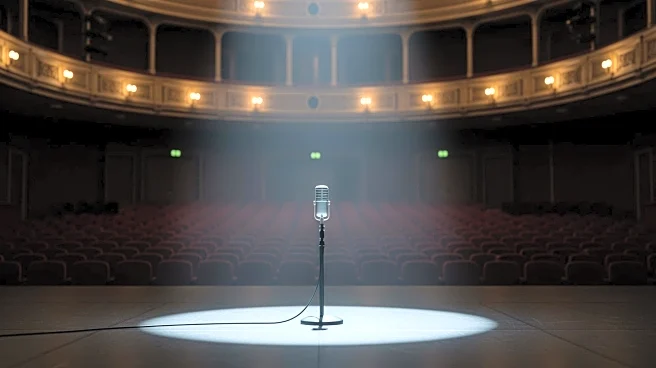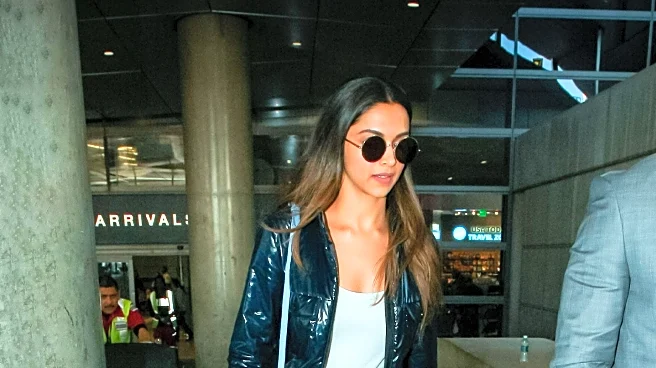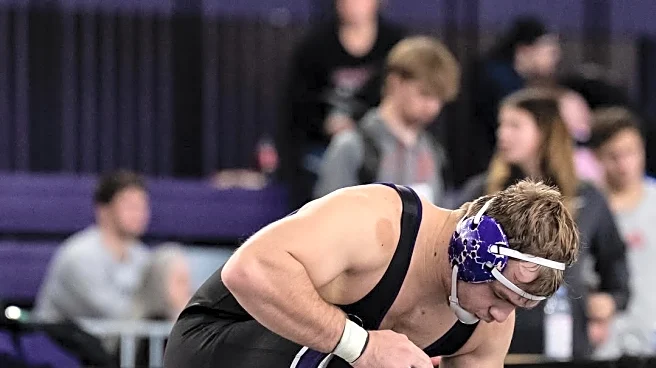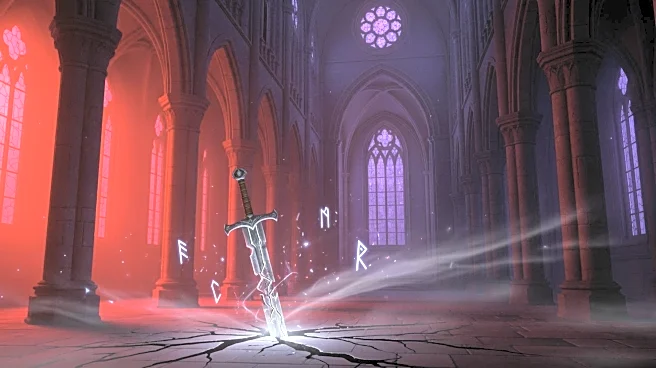What's Happening?
Kristin Chenoweth, known for her role as Glinda in the Broadway musical 'Wicked,' has spoken out about the backlash she faced following her comments on Charlie Kirk, a conservative activist who was assassinated in September. In an interview with the Hollywood
Reporter, Chenoweth described the public fallout as nearly breaking her, stating that she has dealt with the situation and will not answer further questions about it. Her remarks on social media expressing sorrow over Kirk's death led to criticism, particularly from her LGBTQ+ fans, who accused her of aligning with conservative views. Chenoweth later clarified her stance, emphasizing her support for the LGBTQ+ community and explaining that her comments were a moment of human reflection.
Why It's Important?
The incident highlights the complex dynamics between public figures and their audiences, especially when comments intersect with political and social issues. Chenoweth's experience underscores the challenges celebrities face in navigating public discourse, where statements can be interpreted in various ways, leading to significant backlash. This situation also reflects broader societal tensions around political affiliations and the expectations placed on public figures to align with certain ideologies. The backlash against Chenoweth illustrates the potential consequences of expressing views that may not align with the expectations of specific audience segments, particularly in the polarized political climate of the United States.
What's Next?
Chenoweth's decision to refrain from further discussion on the matter suggests a focus on moving forward and possibly avoiding similar controversies in the future. The incident may prompt other public figures to be more cautious in their public statements, especially regarding politically sensitive topics. Additionally, the ongoing dialogue about the role of celebrities in political discourse may continue, with discussions about the balance between personal expression and public perception. Stakeholders such as media outlets and advocacy groups may also engage in further analysis of the impact of celebrity statements on public opinion and social movements.
Beyond the Headlines
The backlash against Chenoweth also raises questions about the ethical responsibilities of public figures in expressing their views, particularly when those views may conflict with their perceived public persona or the values of their fan base. This incident could lead to broader discussions about the role of social media in shaping public narratives and the pressures on celebrities to conform to certain ideological standards. The situation may also contribute to ongoing debates about the influence of political polarization on cultural and entertainment sectors.

















